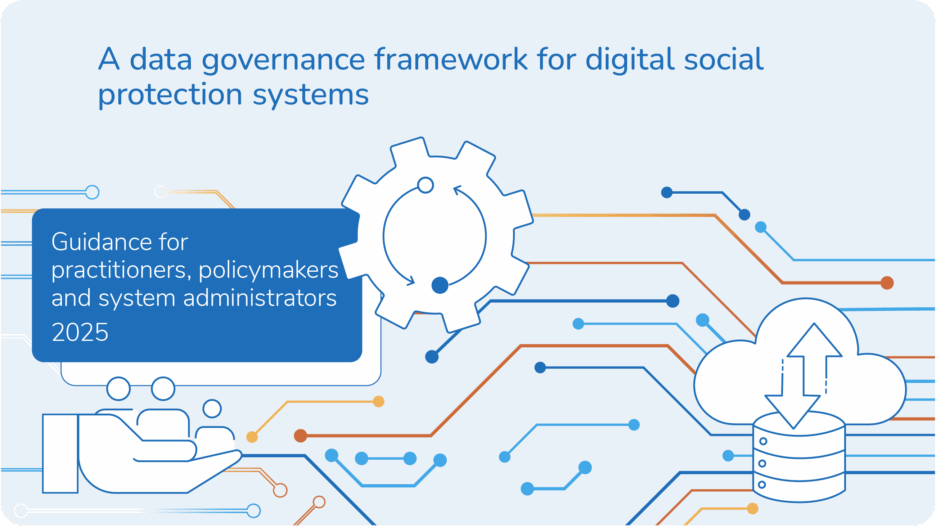A data governance framework for digital social protection systems

Overview
As governments increasingly digitalise their social protection systems, the need for a clear and robust data governance framework has never been more urgent. Digital platforms now play a central role in how countries register beneficiaries, manage payments, and coordinate social assistance and insurance schemes. Yet this shift also brings new risks related to data security, accuracy, ethical use, and public trust. To support countries in navigating this rapidly changing landscape, this publication introduces the first data governance framework designed specifically for the social protection sector.
Building on recognised international standards and sectoral best practices, the Framework is structured around four foundational pillars: management, quality, access, and security. Each pillar translates established concepts into practical guidance for digital social protection systems. The Framework also proposes a process for adapting these elements to national contexts, ensuring alignment with local legislation, institutional arrangements, and capacities.
Rather than offering a rigid compliance model, this resource provides a flexible foundation for policymakers, practitioners, and institutions working to strengthen data governance across social protection programmes. As digital systems evolve and new technologies, including artificial intelligence, reshape public administration, this Framework aims to guide countries in building trusted, secure, and effective data environments that uphold the core principles of inclusivity, accountability, and citizen-centred service delivery.
Required citation
Digital Convergence Initiative. 2025. A data governance framework for digital social protection systems. Deutsche Gesellschaft für Internationale Zusammenarbeit, Germany.
Share your thoughts
Enjoyed this piece? We would love to know what you think. Your feedback helps us make our work better.